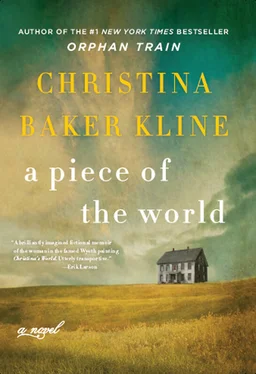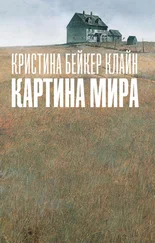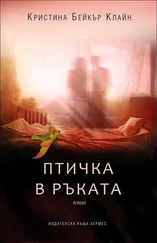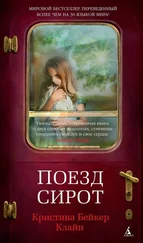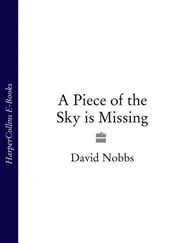I make soap when we need it by combining water with lye and adding oil, then pouring the mixture into molds and letting it dry for several days before turning the bars onto wax paper and putting them in the pantry to cure for a month. I scrub the floors with bleach and well water until my knees and knuckles are red, splotching my dress with white. With my shaky balance, even these ordinary tasks are fraught with peril. My arms and legs are marred and scarred from run-ins with boiling water, toxic bleach, poisonous lye.
When I mutter about these minor injuries, or that too much is expected of me, Al says, “We have a roof over our heads. Some people don’t have that much.” It helps to remember this, I guess. But it’s hard to shake my sadness at having been taken out of school.
Only Mamey understands. “You inherited my curiosity, child,” she says. “More’s the pity.”
As time goes on I find ways to make it bearable. I save three unwanted kittens and choose a runt from a neighbor’s cocker spaniel litter and name him Topsy. I order seed packets and plant a flower garden like the one Emily Dickinson kept, with nasturtiums and pansies and daffodils and marigolds. A butterfly utopia, she called it. When my flowers bloom, they lure yellow-and-black monarchs, cabbage whites, teal blue swallowtails.
I find a poem I copied in my notebook:
Two butterflies went out at Noon
And waltzed above a Stream,
Then stepped straight through the Firmament
And rested on a Beam . . .
And then together bore away
Upon a shining Sea . . .
I imagine these butterflies traveling the world, alighting in my garden for a short time before heading off again. Dream that someday I might grow wings and follow, fluttering behind them down the field and across the water.
I try not to think about what I’d be doing if I weren’t tied to the farm. Anne and Mary Connors are both continuing their studies, I hear. Anne wants to be a nurse and Mary a teacher. There’s talk about her taking over from Mrs. Crowley. When I’m doing errands in Cushing and see one of them from afar, at the hardware store or the post office, I cross to the other side of the road.
WHEN I WAS a child, Mamey would whisper, “You’re like me, Christina. Someday you’ll explore distant lands.” But she has stopped talking like this. Now she just wants me to get out of the house. Unlike my parents, who don’t speak of such things, Mamey is always trying to convince me to “mingle,” as she calls it. “Pity’s sake, you need to be with people your own age!” she says. “Isn’t there a social or a picnic you could go to?”
Al has no interest in the dances that are held on Friday evenings at the Acorn Grange Hall in Cushing, so I go with my friend Sadie Hamm. We walk along the rutted path in the semidarkness, linking arms with several other girls. Sadie always breaks the chain when I fall behind, as I often do, stumbling in the ruts. She pretends she wants to gossip, but really she’s providing ballast.
Sadie wears dresses with lace-trimmed sleeves and pearl buttons, hand-me-downs from her sisters, she says, but fancier than anything I own. I wear navy blue skirts and white muslin shirt-blouses with buttons at the front. A long dark skirt is forgiving; my misshapen legs aren’t as obvious behind its folds. On the way to the dance Sadie sings silly songs and makes a fool of herself, turning cartwheels in her dress. She wears pink lip stain and powder that her sisters bring home from the drugstore in little containers. I envy her free and easy laugh, the way she skips along without fear of stumbling. I wish I dared to speak to the boys at the Grange Hall and get out on the dance floor instead of swaying to the music on the sidelines.
Later, when I’m at home in bed, I conjure entire conversations I might’ve had with a boy named Robert Allan, whose brown eyes and wavy hair I found so appealing that I could hardly bear to look at him directly, even from across the room.
And then, in my imagining, the music starts. “May I have this dance, Christina?” Robert asks.
“Why, yes,” I say.
He extends his hand, and when I take it, he pulls me close, his chest warm against mine. Through my blouse I feel his other hand on the small of my back, guiding me gently, firmly, as he moves forward on his left foot and I step backward with my right: two slow steps, three quick ones, hold. Forward, forward, side to side . . .
I drift to sleep, hearing the music in my head, moving my toes to the rhythm. Two slow steps, three quick ones, hold. Two slow steps, three quick ones, hold.
AT EIGHTY, MAMEY seems to float more than ever on the aquamarine oceans of her past, where the sand is as pale and fine as sugar and the smell of tropical flowers lingers on the air. Her eyelids flutter as she dips in and out of dreams, sinking deeper into herself. She can’t get warm, no matter how many feather ticks and blankets I pile on. I heat a stone in the oven, her old trick, and slide it under the covers to the foot of her bed.
One day I bring her a conch from the Shell Room, its innards as pink and glistening as an inner lip. Gripping the bony conch, she tells me how she found it on a deserted beach on an expedition to Cape Horn with Captain Sam. Sand under their toes and leafy palm fronds overhead, shielding them from the sun. Siesta on a porch and grilled fish and vegetables for supper.
“Next time I’ll take you with me,” she says softly.
“I would like that,” I say.
MAMEY’S HAIR IS thin and yellowed, her skin as freckled and translucent as a meadowlark egg, her eyes searching, unfocused. Her bones are as delicate as a bird’s. Mother comes into her room every day and flits around for half an hour or so, fussing over the bedsheets and picking up soiled linens. “It pains me to look at her,” she tells me. Perching on the edge of Mamey’s bed, gazing up at the ceiling, Mother sings one of her own favorite songs, an old gospel tune she learned in church as a child:
Will there be any stars, any stars in my crown
When at evening the sun goeth down
When I wake with the blest in those
Mansions of rest
Will there be any stars in my crown?
I wonder what those stars are meant to represent. They must be proof that you are especially worthy, that you shine a little brighter than everyone else. But if you wake with the blessed in heaven, isn’t that enough? Haven’t you achieved the most you could’ve hoped for? The words seem at odds with Mother’s personality, her negligible ambitions, her lack of interest in anything beyond the point. Maybe she believes that the way she lives is the height of righteousness. Or maybe, as she’s said before, she just likes the melody.
My father comes upstairs now and then and lingers in the doorway. My brothers drift in and out, rendered speechless in the presence of such profound dissolution. But I can’t really blame them. Mamey always called my brothers “those boys” and kept a wide berth from them, while pulling me close. “Mamey, I’m here,” I murmur, stroking her arm and holding it to my cheek. Her breath on my face smells like scum on a shallow pond.
When she finally dies, it is after days of not eating and barely drinking, her skin tightening across sunken cheeks, her breathing becoming raspy and labored. I think of that poem : the Eyes around—had wrung them dry . . .
The day we bury her is dreary: a colorless sky, gray-boned trees, old sooty snow. Winter, I think, must be tired of itself. Reverend Cohen of the Cushing Baptist Church, in a eulogy at Mamey’s grave in the family cemetery, talks about how she will rejoin the ones she loved who are gone. But as I watch her pine casket descend slowly into the dirt, I try to envision the reunion of a frail eighty-year-old woman with her decades-younger husband and their three sons and am left with the lingering feeling that the places we go in our minds to find comfort have little to do with where our bodies go.
Читать дальше
Конец ознакомительного отрывка
Купить книгу
